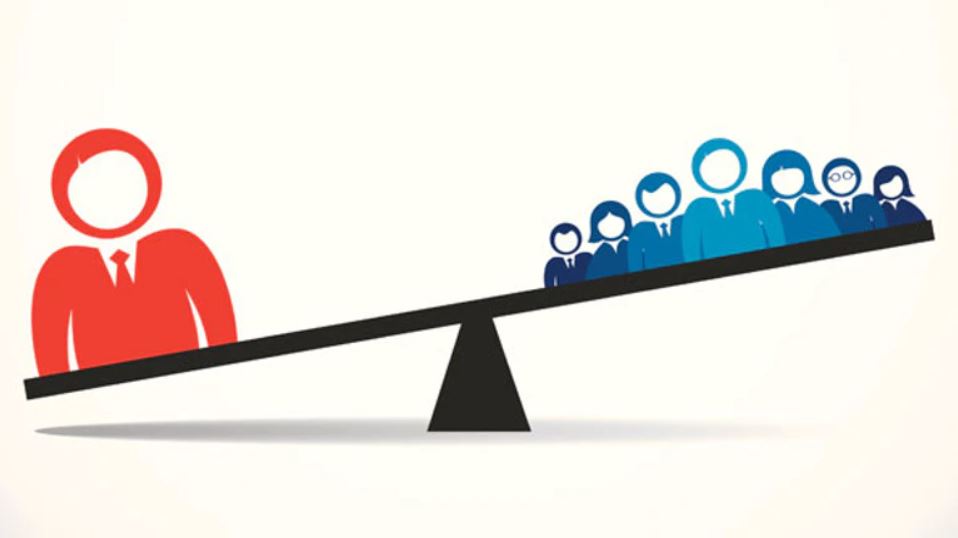Many people, including some academics, say that we cannot overcome COVID-19 because Manipur is a poor state. However, critical observers will find this answer to the question of “why we cannot overcome COVID-19,” while appearing to be correct on the surface, is not only incorrect but also misleading. We could get an entirely different answer for the same question from critical thinkers. This article will raise several questions in order to discover the true answer to avoid similar predicaments in the future when dealing with such difficulties.
Now is not the time to be afraid to speak the truth since the situation we are facing is a big threat to our continued existence as a people. The notion that Manipur is a poor state does not necessarily imply that all Manipuri are impoverished. No one can deny that in Manipur, there are buildings even more magnificent than the King’s palace, yet many people live in huts without basic sanitation.
How can one argue that our state is a poor state while our city is flooded with luxury cars such as the BMW G4, Toyota FJ Cruiser, Lamborghini and Range Rover Velar? While they claim that the state is impoverished, we have many opulently wealthy individuals who carelessly throw money on singers at musical events and other occasions. There are also families which are not worried about spending even Rs. 1 lakhs on a supper at a high-end hotel such as Hotel Classic Grande. However, the state doesn’t have the funds to feed the poor in urban and rural areas two meals a day.
It’s not surprising to see people in the state who are rich enough to launch multimillion worth businesses, but the state itself is too poor to add a few ICU beds to save more lives. While government coffers are empty, leaving the people without basic needs, we have wannabe candidates who can buy votes to win elections by spending crores.
It’s arguable that we can’t beat COVID-19 because we’re not economically equal, not because we’re impoverished. Our society’s real problem is that its wealth is concentrated in the hands of a few people. The Wuhan lockdown was a great success because the Chinese are equally rich. To the Chinese people, the lockdown was more like a vacation.
Our own systems, the state-propagated systems, are our weakness in our situation. Almost all systems are toothless, only allowing a few people to amass vast private property. The healthcare system is no exception. Most Covid-curbing attempts in the state fail due to capitalist structures that generate significant social disparities.
If there were no economic disparities in society, the government wouldn’t need to deceive the people by pretending to supply food to them to stay at home during curfew times. Given the massive economic inequality, it is more than clear that we need a struggle to bring about a structural change in society. However, it will take time, so we have to focus on the challenges at hand, deferring structural reform for the time being. Rather, now is the time to gather as much resources as possible from all levels of society to be use in a systematic fight against COVID-19.
It’s important to recall that at the onset of COVID-19, many radical leaders spoke out about the necessity to communitize the struggle against COVID-19. They were correct in their assessment since true society’s strength is derived from its oneness. They suggested the necessity to pool all of our physical and financial resources by highlighting the importance of communitizing our war against COVID-19. They seem to have already realized that in this battle, the entire state-promoted system will fall flat.
All village level institutions, including Nupi Lup, Village Development Community, and youth clubs, must be revived, besides pooling all village resources. As previously stated, the government is only a vehicle for amassing private property. Everyone understands that the state is exclusively responsible for containing the pandemic; yet, debating the subject is a waste of time. Isn’t it they who imposed curfews and state-wide lockdowns?
If they have the power to impose curfews on people, they must also have the power to feed them or find means to do so. The truth is that we never sensed the state’s existence while we were hungry; we only felt it when we went out to look for food during curfew or lockdowns. Is there anyone among us who received food from the government during the last 10-day curfew?
The government’s word may be a ruse, but hunger is a reality, so let us forget for a while that we have a government or state to assist us and focus instead on what we can do for one another. As previously said, let us revive every local or community-level institution while also pooling all of our available resources. This is not the time to squander our community resources on Yaosang or Lai Haraoba-Haraoba festivities, as we did before the pandemic.
Rather than squandering money on such things, each community might arm itself with the purchasing power of covid-care sold at private and government hospitals. Simultaneously, we may use these local resources to feed the village’s low-income families, limiting people’s movement.
Finally, I’d want to warn all Kanglei people that defeating the pandemic will be difficult, given the existing political, economic, and social structure. However, if we are lucky enough to survive the pandemic, our first goal should be to establish a new society where health care is a fundamental right and a national priority. The struggle should be organized to overthrow the existing economic system that has resulted in people like us, who are poor, helpless, and hungry.












